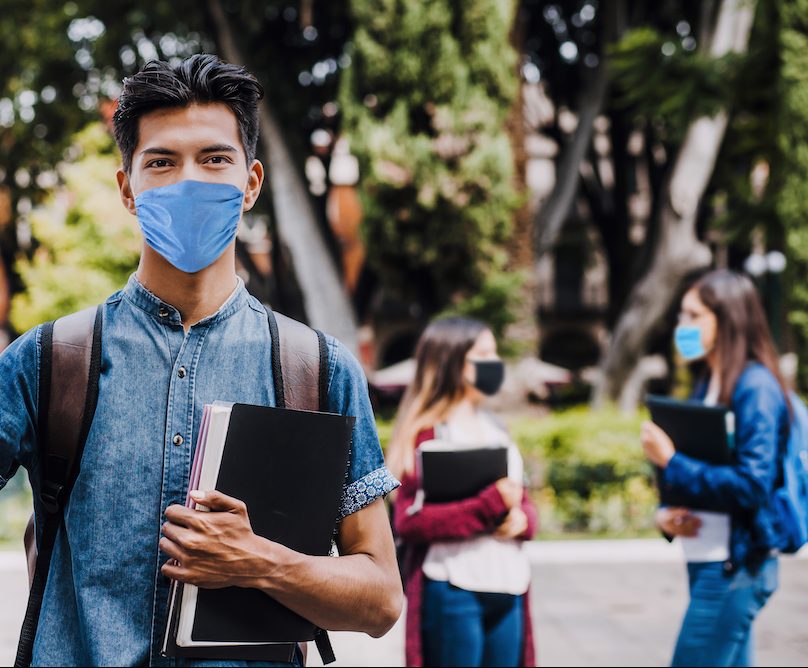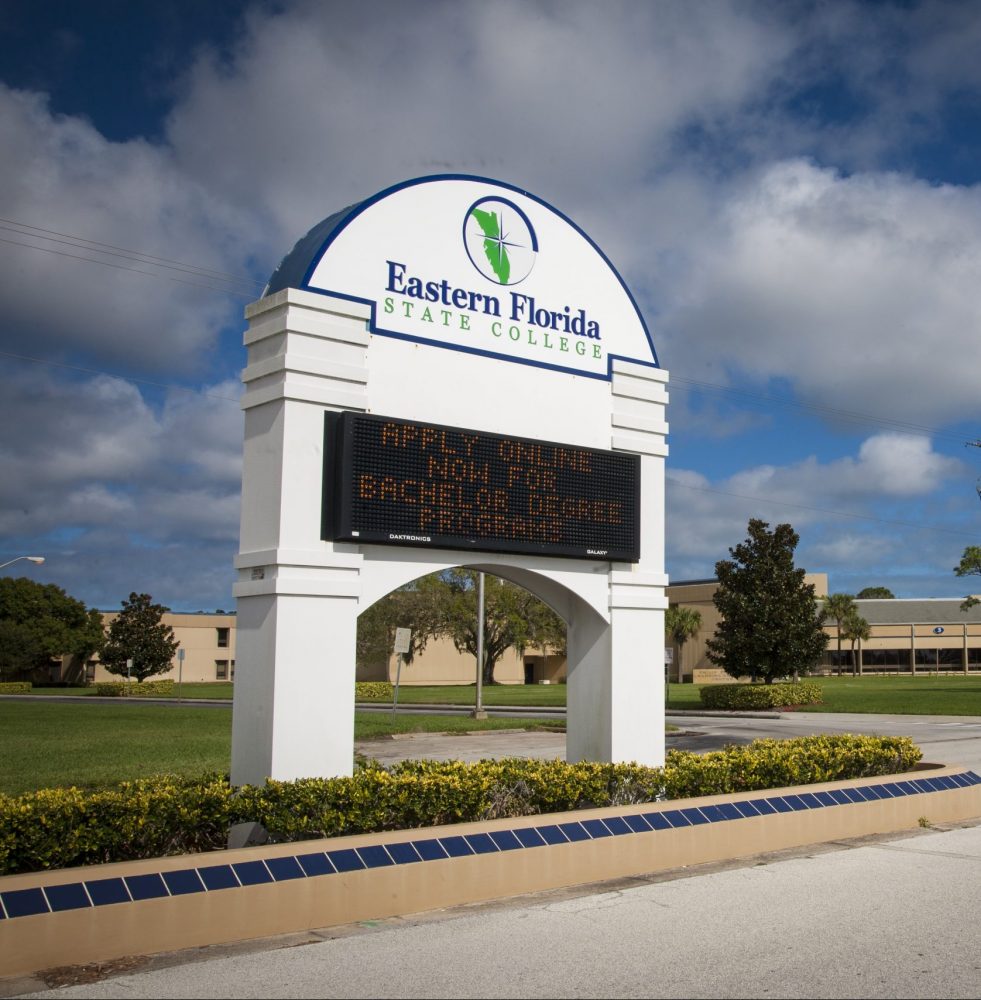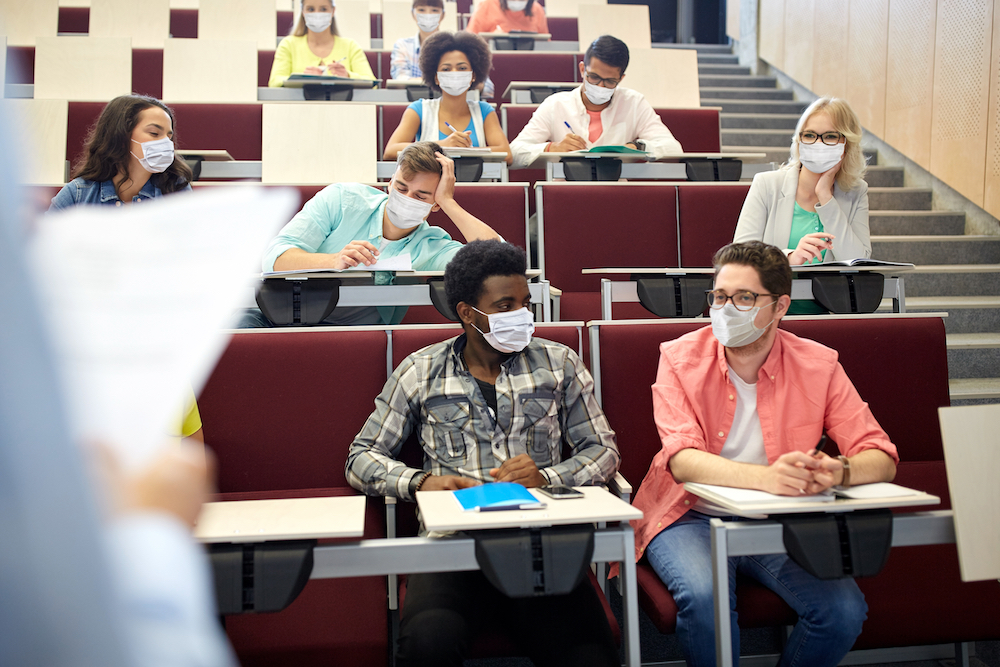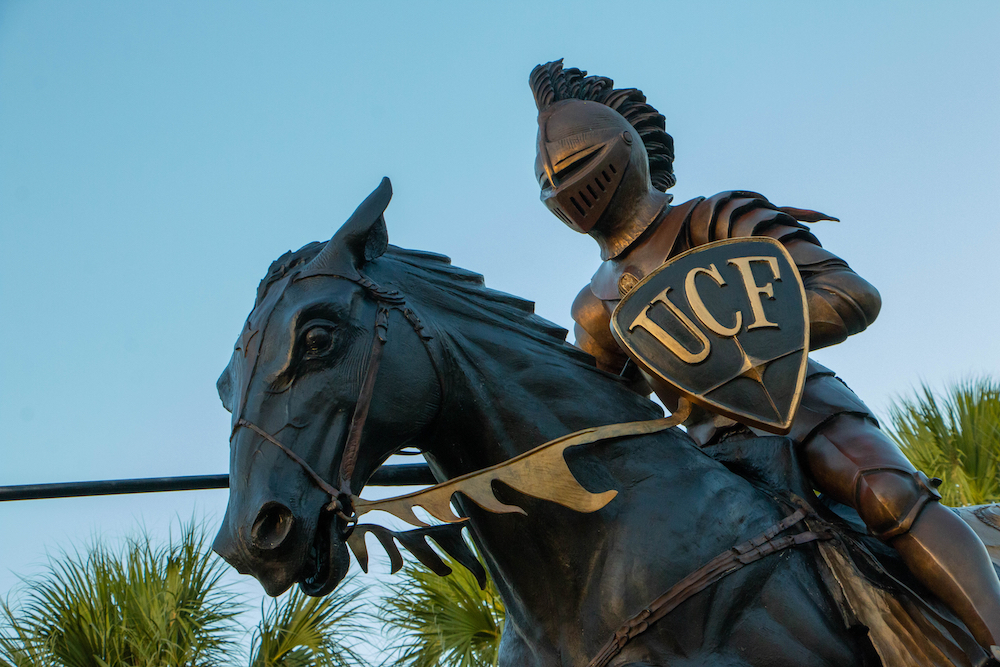The impact of a pandemic-stressed world is evidenced in myriad ways, but not the least in how students, educators and staff at institutions of higher learning would respond and adapt to rapidly-changing guidelines, directives and rules set down by Federal, State and Local governments.
“The process of transitioning from the traditional in-class setting, to an online format in two weeks was a herculean task, one that I could not be more pleased with our administrators and employees for accomplishing.” – John J. Glisch, Associate Vice President of Communications for Eastern Florida State College

On April 1, colleges and universities across the state were officially forced to shutter learning labs and close down classrooms, moving all learning online to ensure students could complete the Spring term, although some had already made the decision to close. And, though it’s not new for colleges to provide online and virtual course choices, E-learning is a growing alternative and a valued choice that accommodates a considerable portion of a university’s student body. Interestingly, University of Central Florida ranks 18th in the country for its on-line learning programs.
From Classrooms on Campus to Classrooms at Home
While e-learning courses and programs are a growing educational medium, many college administrators agree the best way to retain the “new” college student is for them to enjoy the traditional on-campus learning experience. It’s the idea the student will immerse themselves into the everyday life of on-campus activities, clubs and programs, and also allow them to start building personal relationships with administrators, faculty and peers. As COVID continued its stranglehold, colleges would continue to remain closed through the summer, leaving administrators to wonder how students would respond to new class registration with so much uncertainty: Would students who were forced out of traditional class settings take a sabbatical until a vaccine was discovered; would they take time off from school because of financial hardship, or would they continue to attend online courses through the summer? Eventually, the answer became clear as summer enrollment projections caught up to the changing times.
On the Space Coast, Eastern Florida State College reported the highest on-line class enrollment in its history for the Summer 2020 term.

“The spring proved successful for many of our student body, who might not otherwise take an online course – this encouraged them to register and pursue the same online format for the summer,” said Glisch.
Time and Reflection Brings Change
With so much extra time at home, many contemplated how to prepare for life after being furloughed or the loss of a job. If the future didn’t feel ominous enough, there was crippling evidence to confirm anyone’s concerns.
America’s unemployment rate was reported at 13.3% in May 2020, almost a full 10% higher than May of 2019. For Floridians, unemployment rates were even higher, up just over 3% to 14.5% in the same time frame.
At another Space Coast educational institution, the pandemic was a catalyst for deep review.
“At Webster, we have been working with career changers for over the 25 years that we have been [operating] in Melbourne. COVID is just a different impetus for what is causing [people] to look at changing careers,” said Dawn Rodak, Campus Director for Webster’s Melbourne Metropolitan Campus.
Now more than ever, the pursuit of a new degree or different professional experience is attainable with colleges better prepared to handle the onslaught.
Florida Institute of Technology is one institution of higher learning that was initially built for the adult student who works by day and learns by night.
“We have offered fully online programs at our education centers around the country for many years, specifically geared towards this type of student population. It is our heritage, in fact. We were founded in 1958 to provide education to NASA scientists seeking master’s degrees and technicians seeking associate degrees as they arrive at what would soon become Kennedy Space Center. It would be fair to say we have been preparing for this [sort of situation] since our very start,” said Brian Ehrlich, Vice President for Enrollment Management at Florida Tech.

Adapting to the New Normal – Fall on Campus
In June, Florida Gov. Ron Desantis reopened Florida through a progression of phases, with statewide COVID cases on the increase. Since then, the state Department of Health continues to report record increases of new cases per day, which is definitely weighing heavily on the minds of officials, administrators and students across the state.
By this Fall, the college experience for Florida students will involve a variety of alternative instructional formats to include face-to-face, hybrid and online delivery formats to campuses.
University presidents declared almost unanimously, that flexibility would be a major factor in the success of implementing safety protocols for on-campus classes, while keeping people healthy as their guiding priority.
At campuses statewide, the need to safely distance, including wearing a mask, also involves reconfiguring classrooms and labs to protect students and faculty and to comply with important guidelines recommended by the Centers for Disease Control.

By comparison, the Space Coast has enjoyed a much lower infection rate than other metropolitan areas in Florida, and that is providing cautious hope for colleges and universities with a presence here. Like other campuses, Florida Tech’s new normal has included a range of precautions designed for the well-being and safety of each student. “We know that Melbourne has a lower number of infections than other places, so we are helping families understand the accurate context of COVID-19 on the Space Coast and the myriad of strengths this area has to offer,” said Ehrlich.
While many classes are being adapted to the necessary online format, there are still others that require in-person labs and participation. Particularly for health sciences, work force training and public safety courses, campus interface is necessary. To address this, attending students will be required to wear personal protective gear while in the classroom and lab setting. Many classrooms and auditoriums have also been refigured to accommodate the mandated six feet of social distancing among students attending class and the faculty teaching them, as outlined by the CDC and the Florida Department of Health.
Safety and Security, Number One Priority
A newly implemented Orange County executive order for all Orlando residents requires masks be worn by anyone out in the community. Some local officials are predicting Brevard and surrounding counties will follow. This move will certainly assist campus security with ensuring the safety of students attending classes in person, and because it is a government order, colleges and universities will be required to follow suit, rather than establishing their own protocols.
“Knights are known for many things: our ingenuity, our can-do attitude, and caring for each other. And each of us must take steps to not only protect ourselves but to care for each other,” said Alexander Cartwright, President of the University Central Florida.

The time, talent and expertise invested by health experts, university officials and county executives to address the safety and security of students, facilities and staff should be lauded. The story of COVID-19 and its influence on our relationships, our families, our careers and our education, although unprecedented and challenging, is clearly not insurmountable. With flexibility and adaptability, all manner of education and enlightenment can be made possible. •

Kelly Collazo Camirand
Kelly Camirand grew up in the 321 and owns Executive & HealthCare Promotions, Inc., a boutique public relations and market development agency serving the medical, legal, sports, not-for-profit, arts and fashion industry.











